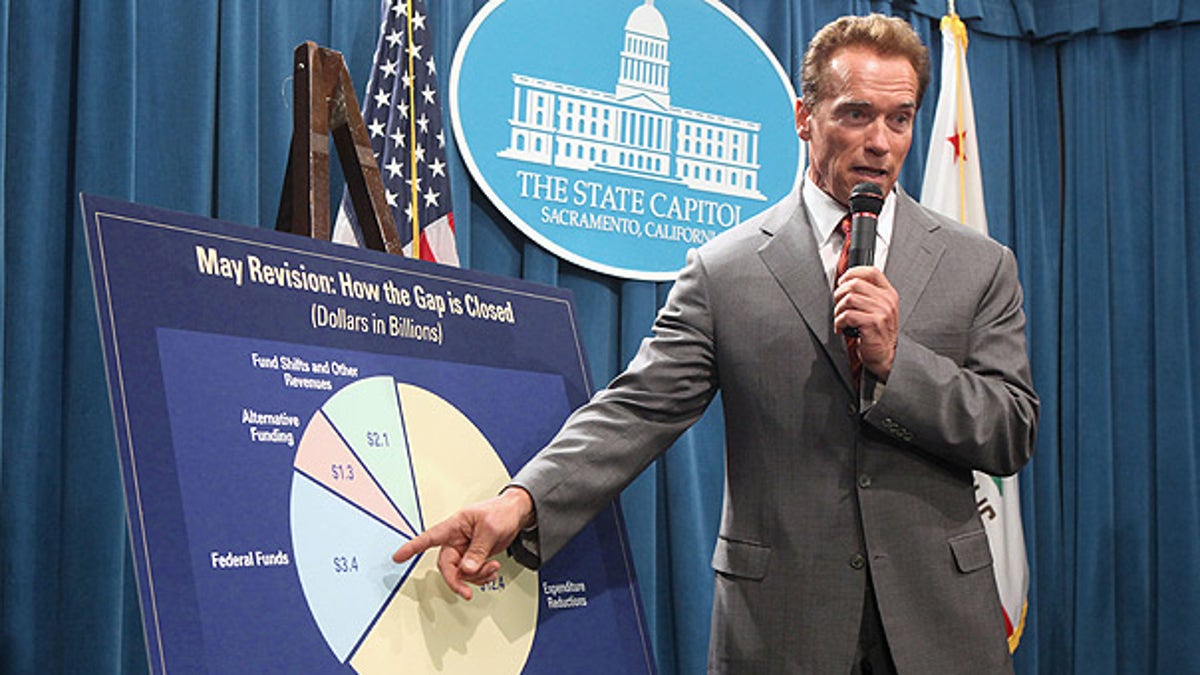
Sept. 1: California Gov. Arnold Schwarzenegger points to a chart showing how his revised budget plan would close a $19 billion budget deficit, in Sacramento. (AP)
Efforts to tame America's ballooning budget deficit could soon confront a daunting reality: Nearly half of all Americans live in a household in which someone receives government benefits, more than at any time in history.
At the same time, the fraction of American households not paying federal income taxes has also grown—to an estimated 45% in 2010, from 39% five years ago, according to the Tax Policy Center, a nonpartisan research organization.
A little more than half don't earn enough to be taxed; the rest take so many credits and deductions they don't owe anything. Most still get hit with Medicare and Social Security payroll taxes, but 13% of all U.S. households pay neither federal income nor payroll taxes.
"We have a very large share of the American population that is getting checks from the government," says Keith Hennessey, an economic adviser to President George W. Bush and now a fellow at the conservative Hoover Institution, "and an increasingly smaller portion of the population that's paying for it."
The dimensions of the budget hole were underscored Monday, when the Treasury reported that the government ran a $1.26 trillion deficit for the first 11 months of the fiscal year, on pace to be the second-biggest on record.
Yet even as Americans express concern over the deficit in opinion polls, many oppose benefit cuts, particularly with the economy on an uneven footing. A Wall Street Journal/NBC News poll conducted late last month found 61% of voters were "enthusiastic" or "comfortable" with congressional candidates who support cutting federal spending in general. But 56% expressed the same enthusiasm for candidates who voted to extend unemployment benefits.
As recently as the early 1980s, about 30% of Americans lived in households in which an individual was receiving Social Security, subsidized housing, jobless benefits or other government-provided benefits. By the third quarter of 2008, 44% were, according to the most recent Census Bureau data.

